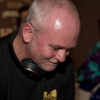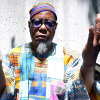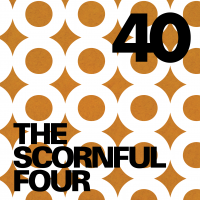Home » Jazz Articles » Catching Up With » Wallace Roney: What’s Going on Today
Wallace Roney: What’s Going on Today

When I came to New York, if Dexter Gordon came to town, we all were there. We revered him. We revered Miles Davis. We wanted to play with Art Blakey and we wanted to play with Herbie Hancock. These kids today probably don’t feel the same.
—Wallace Roney
During his career, Roney has played with Davis, Art Blakey, Dizzy Gillespie, Wayne Shorter, Herbie Hancock, Ron Carter, Chick Corea and a long list of others.
On his new album, Blue Dawn-Blue Nights (HighNote Records, 2019), he's partnered with Emilio Modeste on tenor and soprano saxophones, Oscar Williams II on piano, Paul Cuffarii on bass, Quintin Zoto on guitar and a pair of drummers: Wallace's nephew Kojo Odu Roney and Lenny White.
All About Jazz: You're quoted in the promotional materials saying "I look for musicians who have an expansive understanding of what's possible, and who have the ability to play above that, but who are always cognizant of what's going on around them." I'm guessing that last point has to do with more than just music.
Wallace Roney: That's right, exactly. It has to do with the time you're in. The music that you're playing, the era that you're in. Just because you're using techniques that were pioneered by the masters, you're playing them in this time. So you've got to be cognizant of everything that's going on around you. The sound of what's going on today.
AAJ: Do you think jazz musicians have done a good job of remaining current?
WR: I don't know if they've done a good job. It's not up to me to say that. I'm beyond—at this point—trying to be critical. I don't think music is to be criticized. I think music is to be experienced. People play what they feel, and that's good enough.
AAJ: It takes a pretty accomplished musician to be able to communicate what they feel.
WR: That's for sure. That's the beauty of this music called jazz. You should be an accomplished musician to perform this music. However, there are other musics where you're not accomplished, but music springs up out of you anyway. It's not what I do, and it's not what I prefer to listen to, but I'm not critical of it.
AAJ: Back to your quote, and the reference to expansiveness. Do you ever feel constrained by jazz?
WR: No. Absolutely not. The only constraint that jazz has are the ones that critics put on it. Jazz represents the highest understanding of playing your instrument How can you be constrained by that?
When people start talking about what a person is doing or isn't doing—it's what he wants to do. That's why I don't want to criticize anything anymore. I don't feel like judging. The only thing I want to judge is what I'm trying to do. If people want to take the music that Hank Mobley made in 1960 and just play that, that's fine. It takes a great degree of technical ability to be able to play that.
But for me, I would like to take all of that information from what Bird did, what Pops did, all the way to the highest, most technical—nobody's surpassed what Miles and John Coltrane have done yet. We are all offshoots of that. As long as we're playing 32nd notes and 16th note triplets, that comes from what Miles, Bird and Trane did.
AAJ: What set them apart?
WR: No, no, no. You're not going to get me to say what set them apart. There's nothing that set them apart. It's what the music needed at the time, and the music evolved. Charlie Parker was a genius; we know that. Miles Davis was a genius. The music needed that, and the music needs what's going on now. It wasn't set apart. They put it there, so they could use it and everybody else could use it. When something else moves the harmonic and rhythmic structure of the music to another strata—if it ever gets to another strata—fine.
AAJ: You talk about all this in terms of a continuum.
WR: Right. That's what I tell my guys. Build on the masters. Learn everything they've done. Don't cheat on it. But then, always come out you. Always be you, with it. You're not sitting up there and trying to regurgitate what they did. You're trying to use it from your point of view. And if you're lucky, you might even be able to add to it.
There are a lot of good young musicians, but I need musicians that are trying to play above what everybody else is playing—that really understand what Trane was doing and what Miles was doing and what Thelonious Monk was doing. I mean really understand and utilize it.
AAJ: Do you consider yourself a mentor of young talent?
WR: I never thought about mentoring per say. I thought about it more in terms of leading a band. But it's probably gotten to a point now that I'm quote-unquote mentoring because I'm older than these young guys and I've also had the benefit of playing with the masters. And there are things I learned by playing with them that none of the guys on the scene seem to know. Sometimes it can be frustrating, and so I find myself teaching them so that my music can grow. So that they can get up there and understand how to utilize these things in the music.
AAJ: We're all teachers.
WR: I guess we are. We're all students and we're all teachers.
AAJ: Do you see a difference between the current generation of jazz players and those that came before them?
WR: I do see a difference. It might be because of the music business. They don't respect the ones that paid their dues. When I came to New York, if Dexter Gordon came to town, we all were there. We revered him. We revered Miles Davis. We wanted to play with Art Blakey and we wanted to play with Herbie Hancock.
These kids today probably don't feel the same. They probably feel like 'why should I play with this person, when I can do that myself?' When I first came to New York, I looked forward to playing with the greats to put a demand on whatever ability I had. When I played with Art Blakey for the first time, I almost couldn't hear myself. Hearing him play so magnificently, against what you're playing, it puts a demand on your talent.
But the young guys today don't seem to care or want that. And trust me, they need it. Because when those guys play with me, there are a lot of things that they haven't learned. Advanced things, not stylistic things.
AAJ: I imagine you've got a lot to share.
WR: I was fortunate enough to be Miles' protégé. He liked what I played, and from that point on, I was there any time he was playing. Whenever I could, I would go see him. And some of the conversations that I had with him, I'd utilize on the bandstand with Tony Williams or with Art Blakey.
Tags
Catching Up With
Wallace Roney
Kevin Press
United States
New York
New York City
Miles Davis
Art Blakey
Dizzy Gillespie
Wayne Shorter
Herbie Hancock
Ron Carter
Chick Corea
Emilio Modeste
Oscar Williams II
Paul Cuffari
Quintin Zoto
Kojo Odu Roney
Lenny White
Hank Mobley
John Coltrane
Charlie Parker
Thelonious Monk
PREVIOUS / NEXT
Support All About Jazz
 All About Jazz has been a pillar of jazz since 1995, championing it as an art form and, more importantly, supporting the musicians who make it. Our enduring commitment has made "AAJ" one of the most culturally important websites of its kind, read by hundreds of thousands of fans, musicians and industry figures every month.
All About Jazz has been a pillar of jazz since 1995, championing it as an art form and, more importantly, supporting the musicians who make it. Our enduring commitment has made "AAJ" one of the most culturally important websites of its kind, read by hundreds of thousands of fans, musicians and industry figures every month.


























